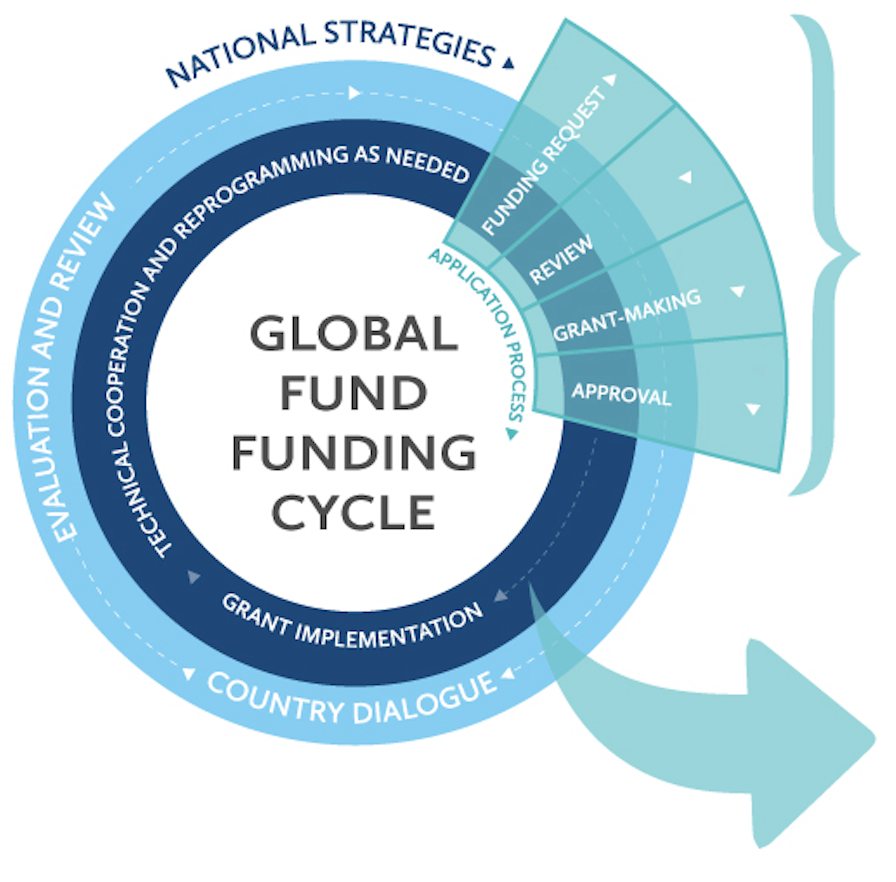Women4GlobalFund brings together a diverse range of advocates, allies and supporters committed to strengthening the impact of the Global Fund by making sure that the rights and needs of women and girls are addressed with the priority they deserve. This means that the Global Fund will deliver on the strategic priority to promote and protect human rights and gender equality.
We do this by influencing processes at country levels – which decides what services and programmes get funding, and the ways in which they are delivered – as well as the debates that happen through the global partnership that underpins the Global Fund.
W4GF Advocates make change happen at local levels by playing an active role engaging in:
Country Dialogues – these are inclusive national processes, usually led by the government and often with support from the UN and other development partners, which help decide what is most important. The Country Dialogue should inform national strategies and choices, and it will also be the place where the most important decisions get taken that shape proposals to the Global Fund (& others) for funding and technical support;
Country Coordination Mechanisms (CCMs) – these are the governance bodies that decide on what proposals are put forward to the Global Fund and oversee how the grants are managed. CCMs are inclusive, national committees that deal with all important decisions related to a country’s relationship with the Global Fund. There are clear principles and requirements that include ensuring that civil society, people living with and affected by the three diseases, key populations and women are well represented, with a good gender balance. W4GF Advocates are encouraged to sit on CCMs, or to get involved with the constituencies that support representatives.
Influencing the Funding Requests starts at the Country Dialogue and is then managed through the CCM, as well as for consultative meetings that happen outside of formal meetings. The Global Fund has a well defined process which advocates need to understand in order to influence best.

Each country is provided with an Allocation from the Global Fund (an amount of money that is available to tackle one or more of the diseases) and there is some guidance about expectations. The CCM then gathers ideas and decides what programmes to submit as a Funding Request, drawing on the areas that the Global Fund finances – these are all described in Global Fund modules. Proposal development is long and usually there are writing teams working with consultants.
W4GF Advocates need to find ways to present their asks to the CCM at the right time and in the right way. One of the most effective ways of doing this is to make arguments drawing on the Technical Guidance documents prepared by the Global Fund secretariat, as well as the normative guidance provided by technical agencies, for example WHO, UNAIDS, Stop TB Partnership, RBM Partnership to End Malaria and UN Women. Check the information page for resources that you can use.
Once the Funding Request is submitted it is reviewed, by the secretariat and an independent Technical Review Panel (TRP). The TRP can ask the CCM to make some changes before the funds are released, or in the early months of grant implementation. Grants are implemented by Principal Recipients (PRs) that sub-grant to Sub-Recipients (SRs) for specific areas of work and activities.
W4GF Advocates need to stay involved throughout all of these processes, and especially once the grant starts to hold countries accountable for delivering on the proposals and the intention of the grant, and to make sure that the rights and needs of women and girls in all their diversity are addressed. W4GF has an Accountability Toolkit that can be used to support this work.
At global level W4GF Advocates can get involved with several processes that influence how the Global Fund makes the decisions that will translate to funds reaching women and girls in countries. This includes sitting on the Board of the Global Fund and influencing decisions through this governance structure as well as providing advice through civil society processes including the Global Fund Partnership Forum, and many activities that W4GF supports.
